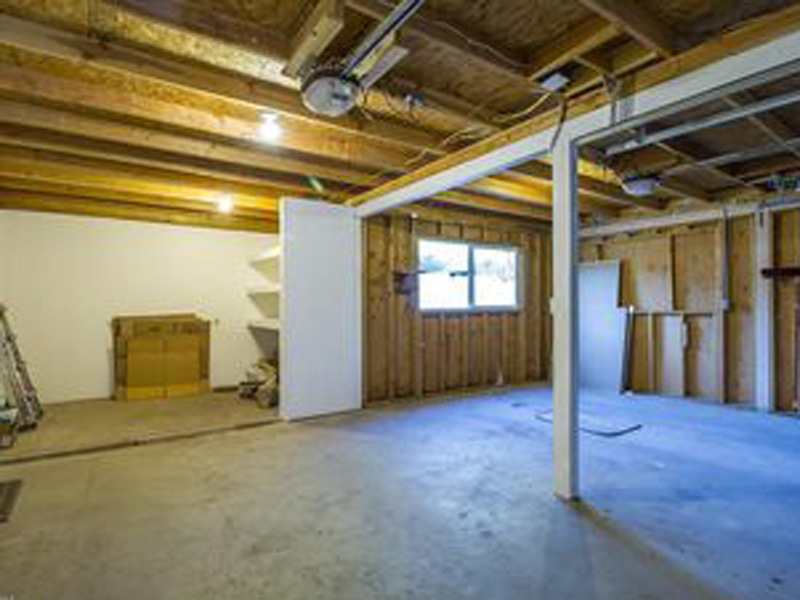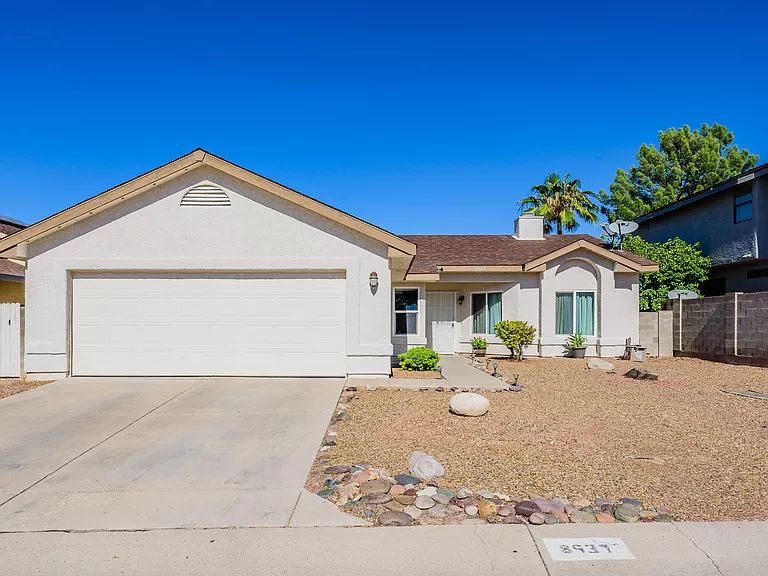Garage Door Not Opening - Specialist Repairing Tips
Is Your Garage Door Stuck? Here's What to Do First
When your garage door won't open, begin with these vital security checks prior to trying any type of repair work. First, make sure no one is standing near the door which vehicles are free from the opening. Seek obvious signs of damage like busted panels, bent tracks, or hanging wires. If you see a snapped spring or severely harmed elements, quit promptly and call a professional—-- these fixings require specific tools and competence to manage securely.

Inspect These 6 Things Prior To Calling an Expert
Prior to presuming you require pricey repair work, go through this quick diagnostic list that resolves most garage door troubles:
-
Source of power: Verify the opener is connected in and the electrical outlet is functioning
-
Remote batteries: Replace dead batteries in your push-button control
-
Hand-operated lock: Inspect if a person accidentally involved the hand-operated lock
-
Obstructions: Look for particles obstructing the door's path or sensing units
-
Emergency release: Guarantee the red emergency cord hasn't been pulled
-
Breaker: Confirm the garage circuit hasn't tripped
These basic checks resolve approximately 70% of garage door issues without requiring specialist treatment.
10 Common Factors Your Garage Door Will Not Open Up
Recognizing why your garage door opener isn't functioning aids you pick the right remedy. Below are one of the most constant reasons home owners experience:
Dead remote batteries stand for the most basic solution—-- when batteries die, the remote can not send signals to the opener. Power outages or stumbled breakers cut electrical energy to the motor. Damaged springtimes avoid the door from lifting properly and need immediate expert interest. Sensor imbalance causes safety and security systems to block door procedure. Track blockages quit rollers from moving smoothly. Electric motor overload triggers automatic shutoffs when the opener discovers resistance. Limit switch problems puzzle the opener regarding door placement. Cord damages interrupts the training mechanism. Weather-related problems influence door movement throughout severe temperature levels. Part wear from age gradually decreases system performance.
Problem # 1: Dead Remote Control Batteries
When what to do if garage door won’t close at night your wall switch functions yet your remote doesn't, dead batteries are usually the perpetrator. Most garage door remotes make use of either 3-volt lithium or 12-volt alkaline batteries. Remove the back cover of your remote and check the battery type. Replace with fresh batteries and check the remote. If it still doesn't work, you may need to reprogram it to your opener. Consult your opener's manual for specific reprogramming guidelines, as the process varies by maker.
Problem # 2: Power Supply Issues
Garage door power issues typically stem from loosened connections or stumbled circuits. Check that the opener is firmly connected into its outlet—-- vibration can loosen connections over time. Evaluate the outlet with one more tool to validate it's working. Analyze your home's breaker box for stumbled circuits, specifically if you've experienced tornados or power variations. GFCI outlets may have tripped and require resetting. If the opener has power but will not respond, the issue most likely lies in other places in the system.
Issue # 3: Broken or Damaged Springs
Broken garage door springs are among one of the most unsafe elements to take care of. If you hear a loud bang from your garage or notice the door really feels very hefty when trying to raise manually, a springtime has actually likely snapped. Torsion springtimes run horizontally over the door, while expansion springs remain on either side. Never try springtime repair work on your own—-- these parts keep significant tension that can create serious injury or death. Professional replacement normally sets you back $150-$300 but guarantees your security.
Problem # 4: Blocked Security Sensors
Modern garage doors include safety sensing units that stop closure when things are identified. These sensing units can stop the door from opening if they're dirty, misaligned, or blocked by particles. Clean sensing unit lenses with a soft towel and make certain nothing obstructs the unseen light beam in between them. Inspect that sensing units are correctly lined up—-- most have indication lights that show link condition. Sensing unit problems often settle with straightforward cleaning and change.
Trouble # 5: Track Obstructions or Damage
Garage door tracks guide rollers as the door moves up and down. Dirt, particles, old grease, or small items can jam the system. Examine tracks aesthetically and remove any blockages with a brush or cloth. Try to find damages, flexes, or warping that might hamper smooth procedure. Small track changes are possible for useful homeowners, yet considerable damage needs specialist repair service to avoid more troubles or safety and security hazards.
Trouble # 6: Garage Door Opener Motor Issues
When the garage door motor runs yet the door doesn't relocate, several concerns could be accountable. The motor may be strained and shutting down as a safety measure. Gear wear, particularly in older units, can avoid appropriate operation. Chain or belt drive issues affect power transmission. If you hear uncommon grinding, clicking, or humming audios, quit using the opener right away. Electric motor fixings frequently set you back more than substitute, specifically for devices over one decade old.
Detailed Do It Yourself Troubleshooting Guide
Follow this methodical approach to garage door troubleshooting while focusing on safety and security throughout the procedure:
Step 1: Test the wall button first. If it functions but the remote doesn't, concentrate on remote issues. If neither jobs, check power supply.
Action 2: Examine the hands-on launch cable. If it's been pulled, the opener is disengaged from the door. Push the cart back to reconnect.
Action 3: By hand test the door by disengaging the opener and attempting to lift the door by hand. It ought to move smoothly and remain in place when half-open.
Step 4: Check noticeable components for damages, paying unique focus to springtimes, cords, and tracks.
Step 5: Examine all security features including sensing units, limitation switches, and auto-reverse functions.
Step 6: Test various controls (remote, wall surface button, keypad) to isolate the trouble source.
Always put on shatterproof glass and job handwear covers when performing examinations, and never effort repair services on springtimes or high-tension components.
When to Call a Specialist vs. do it yourself Solutions

Recognizing when to call a garage door professional versus attempting DIY repair work shields both your safety and security and your pocketbook. Handle these problems yourself: dead remote batteries, power supply issues, small track cleaning, sensing unit cleansing and placement, and standard lubrication.
Never ever try these repair work yourself: spring replacement or modification, cable fixings, significant track adjustment, electric circuitry problems, opener electric motor replacement, or any repair service including high-tension parts. Professional professionals have specialized devices, training, and insurance coverage to handle dangerous fixings securely.
Think about fixing costs versus replacement expenses, particularly for doors over 15 years old. Modern garage doors supply much better safety functions, power effectiveness, and integrity than older designs.
Emergency Situation Garage Door Solutions
When you're stuck to a garage door that won't open up and require instant accessibility, follow these emergency procedures:
Guidebook Operation: Draw the red emergency situation release cable to disengage the opener. This permits hands-on procedure but needs correct technique to stay clear of injury. Lift the door slowly and equally, making use of leg muscles as opposed to your back. The majority of domestic doors evaluate 100-150 extra pounds, making them convenient for most grownups.
Momentary Fixes: If the door opens by hand however won't stay up, prop it open with sawhorses or clamps—-- never ever use your body or automobiles as assistances. For doors that will not close totally, make certain the opening is protected if you should leave.
Emergency situation Service: Many garage door firms use 24/7 emergency situation solution for situations involving safety and security problems, caught vehicles, or full system failings. While a lot more costly than routine service telephone calls, emergency fixings provide instant options when needed most.
Safety and security Caution: What NOT to Do
Garage door security calls for recognizing unsafe repairs that ought to never ever be attempted by house owners:
Never ever try to fix springs—-- they store enough energy to cause deadly injuries when they break or are incorrectly managed. Don't require a stuck door—-- this can harm the opener, tracks, or door panels, creating extra expensive problems. Stay clear of bypassing safety and security features—-- sensing units and auto-reverse systems avoid major injuries and building damages.
Don't ignore strange noises—-- grinding, scratching, or banging noises suggest issues that get worse over time. Never ever utilize the door if cords are torn or broken—-- the door might drop all of a sudden. Don't attempt electric repairs unless you're a certified electrical contractor—-- garage door openers use both 120V family existing and low-voltage control circuits.

Precautionary Upkeep to Prevent Future Problems
Regular garage door upkeep protects against most usual problems and extends system life-span considerably:
Monthly Jobs: Aesthetic examination of all elements, checking auto-reverse security attributes, inspecting and tightening hardware, and cleaning tracks and sensors.
Quarterly Tasks: Oiling all relocating parts with ideal garage door lubricating substance, screening guidebook operation, and examining climate sealing.
Yearly Jobs: Professional assessment and tune-up, springtime modification if needed, and opener maintenance including belt or chain change.
Seasonal Jobs: Planning for weather condition extremes, checking insulation, and adjusting opener settings for temperature adjustments.
Consistent upkeep prices far less than emergency situation repair work and makes certain trusted procedure year-round.
Garage Door Won't Open FAQs
Why won't my garage door open with the remote however works with the wall button?
This typically indicates dead remote batteries, signal disturbance, or the requirement to reprogram the remote. Check batteries initially, then consult your opener guidebook for reprogramming guidelines.
Can I by hand open my garage door if the power is out?
Yes, draw the red emergency situation release cable to disengage the opener, then lift the door manually. Be prepared for the door's complete weight and lift with correct technique to prevent injury.
Just how do I recognize if my garage door springtime is broken?
Indications include a loud bang from the garage, the door sensation extremely hefty when lifting manually, visible spaces in the springtime coils, or the door just opening up a few inches before stopping.
Is it risk-free to utilize my garage door if it will not open up all the way?
No, partial procedure shows mechanical problems that could get worse instantly. Quit using the door and have it checked by an expert to avoid further damages or injury.
What should I do if my garage door opens but will not shut?
Examine safety and security sensors for obstructions or imbalance, analyze the tracks for particles, and evaluate the auto-reverse feature. If these don't address the problem, speak with an expert.
How much does it set you back to deal with a garage door that won't open?
Expenses differ extensively relying on the issue: battery replacement ($5-$10), specialist diagnosis ($50-$100), spring replacement ($150-$300), or opener substitute ($200-$500).
Can weather influence my garage door's capacity to open?
Yes, severe cold can enlarge lubes and impact steel elements, while warm can create expansion problems. Many problems settle as temperatures normalize, but persistent issues may require professional interest.
Why does my garage door open a few inches then stop?
This typically suggests damaged springtimes, limitation switch problems, or track obstructions. The opener's security functions stop procedure when resistance is found, preventing damages to the electric motor or door.
Obtain Specialist Help for Complex Concerns
When DIY troubleshooting does not settle your garage door troubles, professional technicians give the knowledge and tools required for secure, enduring fixings. Certified professionals detect concerns accurately, make use of manufacturer-approved parts, and offer warranties on their work.
Specialist solutions include: detailed system evaluations, springtime and cable television replacement, opener fixing and replacement, track positioning and replacement, electrical troubleshooting, and emergency situation solution phone calls.
What to expect: ahead of time rates, certified and insured professionals, same-day solution for many repairs, and follow-up maintenance suggestions.
Most garage door firms use totally free estimates for significant repair work and can give prompt solutions for immediate problems impacting home protection or car gain access to.
Getting Your Garage Door Working Again
A garage door that won't open doesn't need to wreck your day or break your budget. Beginning with easy troubleshooting steps like checking power, replacing batteries, and analyzing for evident blockages. Numerous troubles have quick do it yourself remedies that restore regular operation within minutes.
Nevertheless, identify when expert help is needed—-- particularly for spring-related problems, electrical troubles, or complicated mechanical failures. Attempting unsafe repair services on your own runs the risk of major injury and typically creates a lot more pricey issues.
Routine upkeep protects against most garage door issues and ensures reputable operation for several years to come. When troubles do happen, address them promptly to stay clear of more pricey fixings and keep your home's security and benefit. Whether you require an easy battery substitute or complete system overhaul, remedies exist to get your garage door functioning efficiently again.
Eddie's Garage Door Service
5505 N La Canada Dr, Tucson, AZ 85704
(520) 965-8259
www.EddiesGarageDoorService.com